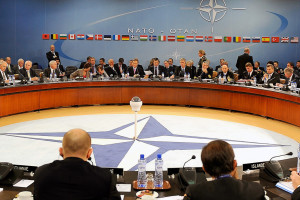[NATO Expansion and International Law] Re: 2016-#7-Johnson’s Russia List/Mercouris re NATO

Subject: Re: 2016-#7-Johnson’s Russia List/Mercouris re NATO
Date: Wed, 13 Jan 2016
From: Timothy Stubbs <timothy.stubbs@dentons.com>
As regards Mr. Mercouris’s article of today:
In any legal system, agreements intended to be treated as binding and enforceable must meet certain customary formal and substantive requirements for the parties thereto to have a reasonable expectation that such agreements will be treated as such.
As regards the alleged “not-one-inch-eastward” NATO pledge, for the USSR and its successor states (including the Russian Federation) to make a colourable accusation of the USA for having “breached a commitment,” they should prove there was indeed such a commitment, of sufficient clarity, genuinely intended and understood by both parties to be binding and meeting the relevant formal and substantive requirements.
International treaties between sovereigns generally have very strict formal and substantive requirements. Even trainee lawyers and junior diplomats with the most limited experience appreciate this.
Had the Soviet Government (who had negotiated and concluded countless international treaties and whose ministry of foreign affairs included some the world’s brightest, most distinguished international legal scholars and diplomats) genuinely intended for there to be a binding quid pro quo for German reunification (in the form of a real no-NATO-expansion obligation), it would definitely have ensured the requisite formalities were followed. It did not do so.
This is not to say that NATO expansion was intelligent policy. It was sheer idiocy. It has contributed to bringing us to exactly where we stand today.
But idiocy is not the same as a violation of a binding commitment.
[featured image is file photo]
